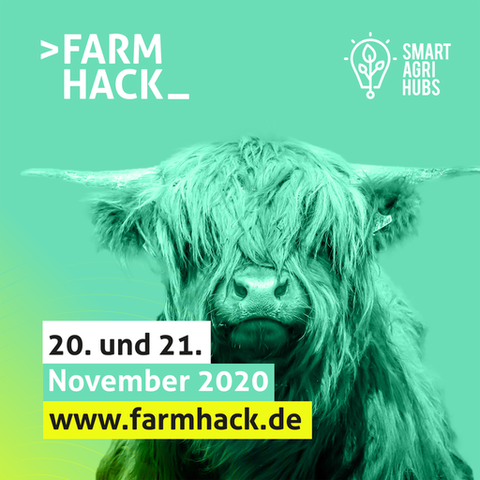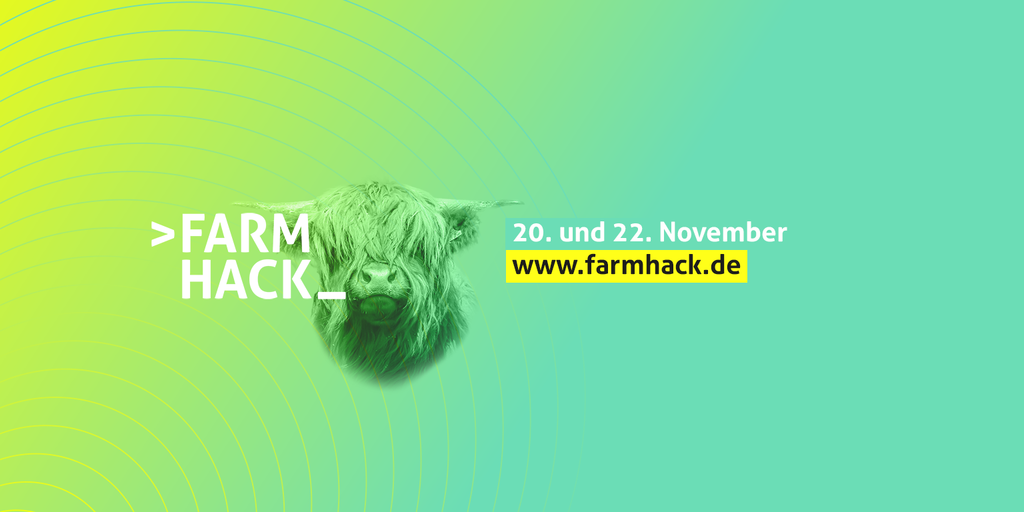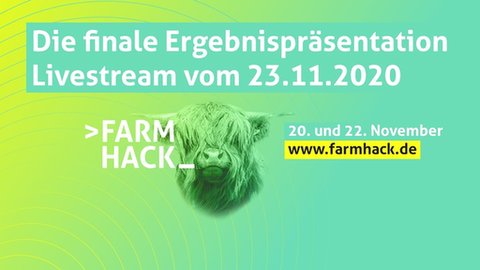Participants
79 participants
North-West
Europe
Duration
2 days of hacking

Overview
Eleven motivated teams were formed and tackled the various challenges directly. To support them, each team was assigned a mentor, including employees of the Osnabrück University of Applied Sciences and the renowned Leibniz Institute for Vegetable and Ornamental Crops. To ensure that none of the participants had to start the 21-hour hacking phase hungry, the organizers from Innovate GmbH organized a fresh pizza and cool drinks for each participant. This was a logistical effort, as the participants had registered from 29 different cities between Bremen and Konstanz. An individual certificate of participation was shared to all participants. More information is available on the hackathon website.

List of ideas that was worked on
The core challenges offered during the hackathon focused on digital solutions designed to address challenges in the agricultural industry in particular: Optimizing hygiene processes in slaughterhouses, staff shortages in harvesting specialty crops, short-term fluctuations in demand for French fries and meat products, and the problem of food waste in the restaurant industry. Concrete challenges were additionally contributed by companies. For example, Iglo, the market leader for frozen foods, posed the challenge of predicting the growth of spinach with the help of an algorithm. The start-up Bauer-nebenan.de was pleased to receive support for its challenge to evaluate the ecological footprint of regional purchases.
Two challenges were submitted by companies and four challenges were defined by our partners, who accepted the problems addressed in the proposal. In addition, the participants were free to submit their own challenges, which were to be based on the specified ones. All teams have been supported by experienced mentors, have been provided with a communication platform and a platform for data exchange.
HackatHon
Organised by Innovate GmbH
Farmhack: Innovations Generated through Hackathon-Tackling
Prizes
01
support by mentor; 1250€
02
support by mentor, 750€
03
750€ + further development with the host of the challenge
Outside of the podium, team Organifarms has adopted the developments during the hackathon for their own start-up and will report on them at the Global Food Summit. Team Wrap'n'hold arranged a meeting at the Seedhouse for further support and discussion of the possibility of founding a start-up.
Pop Up Places
First place, endowed with €1,250, went to the "PopUp Places" team with an AI-based platform for optimizing the location of food trucks.
During the lockdowns, restaurants had the rapidly adapt to a new format by organizing either take away or food trucks. Relying only on take-aways might not be the most efficient strategy, as the orders might be insufficient. Launching a food truck can also be difficult, as the location is crucial. Food trucks were also challenged by the lockdowns, especially if they initially relied on the lunch revenues from now deserted business neighbourhoods.
The application developed uses mob programming to track and evaluate pop up restaurants and other food trucks. On this app, you can see the size of parking spot in a specific area, potential sales, access to water and electricity, parking buget and estimated sales per day. The app optimizes the choice of parking spots for food trucks, to maximize their profit. The concept would be available under a subscription plan and enable the user to book a parking spot online.
A test application is accessible here.
Team PopUpPlaces established contacts to companies to push the development of the solution and to support the marketing.
Team 14
A schema of the expected system organization. From the left to right: management with Shopify (easy to use, inventory management, fulfilling orders) backend with NodeJS and MongoDB (API for Mobile app, dataset with users, producers and Hubs, Search suitable Hubs for users), Mobile app with Flutter (iOS and Android, modern interface with material UI from Google)
Second place went to a duo that developed a Shopify-based app to sell regionally grown food simply with a click. The team developed a platform to enable the regional marketing of agri-food directly from the farmer to the consumer. In this way, regional sales should be increased, the ecological footprint of consumers reduced, and the disposal of non-standard food (misshapen, wrong size) counteracted. The team will further develop with the host of the challenge bauer-nebenan.de.
Popeye
Third place went to team "Popeye," which developed a process to predict the growth of spinach for frozen food market leader Iglo.Team Popeye is in talks with the company Iglo to implement the developed concept. Furthermore, contact has been established with EIP-Agri to discuss further development possibilities there. This team proposed a concept for predicting the growth of spinach plants was developed; based on existing data, this is intended to support optimum growth and determine the right time for harvesting; the aim is to minimize failures due to environmental influences and to increase the efficiency of the farmer's work. The team consists of several farmers, some of whom have experience growing spinach themselves, as well as an IT developer.
The team was awarded a 500 € cash prize.
Other teams
Team Organifarms has adopted the developments during the hackathon for their own start-up and will report on them at the Global Food Summit. Team Wrap'n'hold arranged a meeting at the Seedhouse for further support and discussion of the possibility of founding a start-up.
The hackathon has reached and inspired many companies and organisations from the agricultural sector, so that cooperation is currently being negotiated in order to further develop and grow the event.
After the end of the Hackathon, all teams were offered individual support and contacts for further development in personal meetings.


